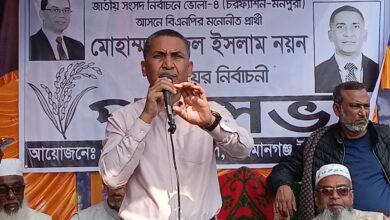Smart Migration Starts with Skills

Times24.net: “Brother! I am going to Qatar. Please pray for me,” A very young man says this over a cup of tea, eyes gleaming with dreams of a new life. But the important question is that does he know what kind of work waits for him in Qatar? Does he speak the native language of Qatar? Does he have any skills?
Each and every year, hundreds of thousands of Bangladeshis head overseas in search of employment. But most of them go unskilled and untrained. They leave with the illusion that foreign lands automatically offer a better life, an illusion they often don’t realize until it is too late. As a result, many end up fixed in the lowest-paid jobs, like construction laborers, housekeepers, cleaners, warehouse assistants, or agricultural workers.
We will find thousands of Bangladeshis toiling under the burning sun in Saudi Arabia, Kuwait, Oman, Qatar, Bahrain, or the UAE. Meanwhile, their counterparts from the Philippines or Sri Lanka often earn double or triple for the same work. Why? Because they have skills in different areas. Besides, if they don’t understand the language of the country in where they are going to, how will they learn the work? How will they communicate? How will they demand your rights?
Many Bangladeshi workers rely solely on a few memorized words such as “Yalla-Yalla” or “Mafi-Mafi” to get through their day. They can’t properly express problems to boss and don’t even attempt to solve them. The main reason is to fear of the language. Even in emergency situations such as explaining symptoms to a doctor, talking to the police, managing bank accounts, or renting a flat or a house, they must depend on others. Their presence in other countries becomes one of silence and helplessness.
Imagine the difference if, before going abroad, they had spent only six months learning a trade electrical work, plumbing, web development, painting, AC repair, hair cutting or cooking. They could have entered foreign labor markets as skilled workers instead of surviving as expendable labor.
At present, anyone aiming to go South Korea must pass a Korean language test (EPS-TOPIK). Similarly, Japan requires the JLPT. In Europe, knowledge of English or local languages is essential. But many people ignore these facts and place blind trust in brokers. Without preparation themselves, they leave own country to fate and to turn the wheel of fortune, they spend thousands on brokers and fake training certificates.
What’s the consequence? Either they don’t find work, or they’re trapped in odd jobs with miserable pay. All of this could have been avoided if they had simply taken a language course, gained technical training, or earned a vocational diploma before leaving.
Life of an unskilled migrant worker is often brutal because of fourteen to sixteen hours of labor daily, no regular days off, poor food, bad housing, and limited access to healthcare. Some workers go unpaid for months. If they protest, they risk losing their job. Worse still, the experience and labor of these unskilled workers have no value when they return home. They come back with nothing but fatigue, only to find themselves unemployed once again.
So, question can come to mind where is the solution? It exists if we some initiatives are followed. Anyone planning to go abroad must acquire at least one technical skill. A certificate without real knowledge is meaningless. Skills must be demonstrable. Modern language centers must be established in every district to provide basic level training in Arabic, English, Korean, Spanish, French, or Japanese before departure. Before going to abroad, one must learn basic speaking and writing skills in the local language. The entire migration process should be under government supervision which will transparent, technology-based and free from middlemen. Public awareness and digital platforms can help break the broker monopoly. Since most of our migrants head to the Middle East, it’s high time we diversify. Southeast Asia, Eastern Europe, Africa, and Latin America are emerging labor markets. Countries like Malaysia, Japan, South Korea, Romania, Belarus, Croatia, Poland, Brazil, and Chile are currently experiencing labor shortages. Through diplomatic efforts, we can secure positions for Bangladeshi workers in these regions. We need data driven analysis of global labor market demands. Based on this, we can design targeted skills training programs.
Going abroad is not just about earning money. It is a life changing decision. Without proper preparation, it can become a tragic waste of life and potential.
~ Riazul Haque, Economic Analyst and Joint Director at Bangladesh Bank, is the author of this article.




